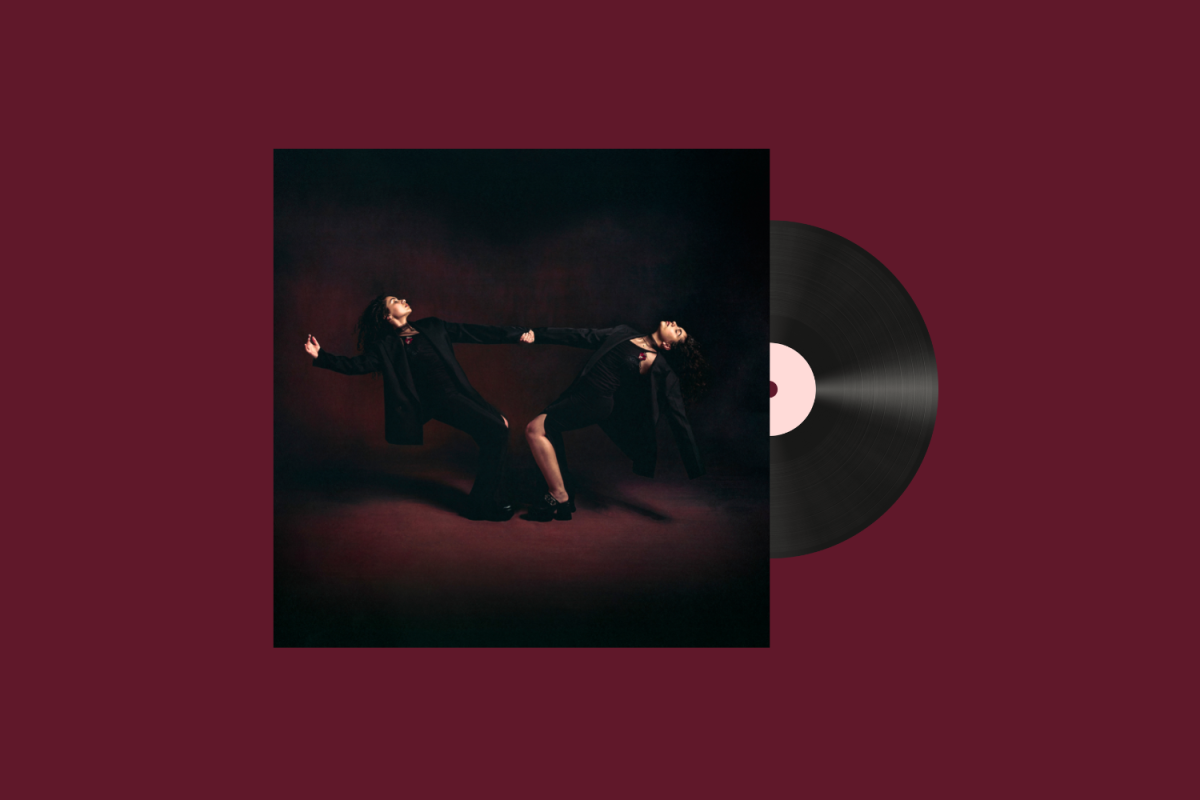At some point in 2015, every pop-loving teenager listened to Alessia Cara’s self-love anthem “Scars to Your Beautiful.” The song played everywhere, from outlet stores to radio stations, and Cara won best new artist at the 2018 Grammy Awards. However, despite her moment in the spotlight, Cara seemed to disappear from the mainstream music industry in the seven years following her hit single. The attention given to her three records during this time period is incomparable to that given to her popular debut album, “Know-It-All.”
Her latest album, “Love & Hyperbole,” is different from any of her previous tracks that her long-time fans will remember. Although it carries the same lyrical talent and vulnerability as her prior work, her newest record seems to take on a new stage in her life. Her music has progressed greatly from the once-innocent lyricism present in songs like “Wild Things” and others on “Know-It-All.” When her career kicked off at 19, self-love anthems defined Cara’s discography, but now at 28, her songs have matured to convey the elaborate and complex emotional experiences that she has lived through — a maturation that is clear in her newest album.
The album opens with “Go Outside!,” which dives headfirst into Cara’s new era of musical maturity. Alluding to the experience of fighting depression, the lyrics tackle the subject of feeling lonely in large cities: “Lonely in L.A. / I’m such a cliche / Is it worse, or is it just me?” Her music retains the same open quality of her prior songs — however, as she’s aged, so has the way her music explores vulnerability.
The rest of the album dives deeper into the album’s story, which seemingly explores a romantic relationship in her life through multiple phases. The subject of a strained romance is explored on the third track, “Dead Man,” which outwardly calls out a former or current partner as Cara sings that she is “talkin’ to a dead man.” The next track, “Subside,” states that Cara is “fighting with an ache that won’t subside.” Throughout both these tracks, she begins to show a vulnerable side of her love life, going into detail about the emotional disconnect that can come from a distant partner. “Get To You” speaks directly to this person, where Cara sings, “How am I supposed to know / Which set of skin and bones feels right to hold for life?” These tracks convey emotion through honest lyrics about the tentativeness of relationships that show how she’s able to be genuine with her audience and not hold anything back in her music.
The final third of her album completely flips thematically as Cara explains the feeling of falling in love, rather than the anger that comes with a failing relationship. On “Nighttime Thing,” Cara sings, “I think I like you like that.” The rest of the song provides the listener with an upbeat, melancholic love story that completely shifts from the previously established tone of the album. Her other song, “Fire,” paints a similar picture, where she sings, “I’m jumping in head first, and / Ooh, I’m on fire.” These lyrics capture the overwhelming emotions that come with falling in love, showing Cara’s ability to fully embody a feeling of falling in love through romantic lyrics and a catchy beat.
Ultimately, Cara’s pristine lyrical talent shines throughout this album, as she’s able to make the tracks feel less like a group of songs and more like a narrative story, guiding listeners through the sometimes vulnerable and emotional stories of her romantic life. Although her album has traces of her past hits in its detailed lyricism, this album demonstrates that a new era of her music has emerged, defined by mature vulnerability and narratives. “Love & Hyperbole” is a reflection of how Cara has continued to develop as both a musician and an individual.
Contact Ellie DaSilva at arts@nyunews.com.























































































































































